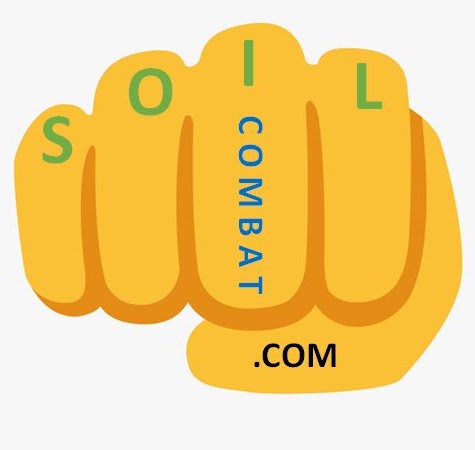
Desertification is a growing concern in Portugal as models predict decreasing annual precipitation, and higher intensity events especially in the winter season, and increased potential evapotranspiration. SOILCOMBAT’s idea is to adapt the sponge function of pasture soils by engineering them with designer biochar to raise the organic matter saturation several times, without the need for regular inputs of organic matter because the turnover of biochar is 100-1000 times slower. The aspect of biochar relates to the type and amount of biochar that optimises the sponge function without compromising other key desertification indicators, e.g. salinization and decline in biodiversity.
SOILCOMBAT aims to engineer the sponge function of Portuguese pasture soils to sustainably combat desertification. SOILCOMBAT’s main innovative aspect is the focus on the sponge function of soil COMBINED with screening for potential trade-offs – such as germination, soil ecotoxicity – to maintain sustainability. Desertification is a crosscutting issue of the soil threats: i) erosion; ii) decline in SOC; iii) salinization; and iv) decline in soil biodiversity. Therefore, to study sustainability trade-offs, dose-responses of biochar treatments for these soil threats are paramount. The approach combines lab, lysimeter and field experiments with quantitative meta-analysis and development of carbon and water footprint methods. The PI’s scientific focus over the last decade has been on moving biochar research from the frivolous fringe into the mainstream by making the field more comprehensive by identifying unknown – but relevant – processes, identifying sustainability requirements, guiding the direction of research with meta-analyses on crop yield and methane to identify knowledge gaps and indications of causal relationships, and by experimental research to reduce soil erosion, and to build a capacity to screen for effects on soil biodiversity in a collaboration with the biology department and specifically team member Ana Bastos. Experiments in the lab using rainfall simulations and in the field under natural rainfall revealed a surprisingly strong reduction in runoff (increase in infiltration) of 30-to-60%, and elevated soil moisture contents during dry periods for arable and vineyard soil, respectively. The PI, and the whole SOILCOMBAT team, are curious – and motivated – to find out how they can apply the knowledge and skills they have developed to improve the sponge function of Portuguese pasture soils, in an effort to combat desertification.
To do this well, we have put together a multidisciplinary team with leading experts from 3 Portuguese institutes. In addition to the biochar expertise – and the Assistant Researcher position on the same topic as SOILCOMBAT (CEECIND/02509/2018) – of the PI at the Universidade de Aveiro, SOILCOMBAT benefits from the grassland ecology expertise of Dr. M.Jongen of the Universidade de Lisboa (UL) and the GHG emissions expertise of Dr. D. Fangueiro of the Instituto Superior de Agronomia. Dr. Jongen’s contribution will expand simple vegetation cover dynamics to include effects on species composition and rooting depth. Dr. Fangueiro’s contribution will allow to find out if GHG emissions will be affected by biochar, and calculate yield-scaled emissions. SOILCOMBAT is an interdisciplinary project that brings together specific expertises from the Earth Surface Processes team and CESAM: biochar-soil ecotoxicology; soil respiration; soil structure; enzymatic activity; soil water repellency, water scarcity and carbon footprinting; SWAT; soil and water chemistry; pyrolysis; and stakeholder analysis. The involvement of Tiago Domingos from UL as well as the director of Terraprima is an asset to SOILCOMBAT because his experience in sequestering carbon in biodiverse grasslands can identify pitfalls and provide solutions, as well as the practical advantages of the field component of the work plan being integrated with the management of the experimental farm of Terraprima.
SOILCOMBAT’s results will: i) contribute to combating desertification, restoring and promoting sustainable use of terrestrial ecosystems (SDG15); ii) strengthen resilience and adaptive capacity to climate-related hazards, to strengthen capacity for adaptation to climate change, extreme weather, drought, flooding (SD13); ensure resilient agricultural practices that increase productivity and production, improving land/soil quality (SD2). Because SOILCOMBAT’s field site is on the experimental farm of Terraprima, the outlook for continued monitoring after the project’s lifetime is positive, either as part of a new competitively funded project, continued funding from an institutional project, or by Terraprima’s own resources. SOILCOMBAT will deepen the
knowledge base of what tools are available to help combat desertification for regional and national policy development.

